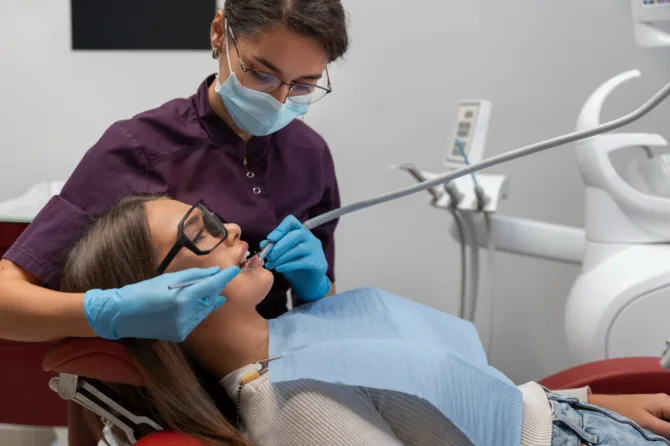
Your Comprehensive Guide to Handling Dental Emergencies with Confidence
Introduction:
Welcome to our comprehensive guide on dental emergencies! As a dentist, you understand the importance of being prepared to handle any dental crisis that may arise. Dental emergencies can be distressing for patients, but with the right knowledge and preparation, you can provide them with the care and reassurance they need. In this blog post, we’ll cover everything you need to know about dental emergency, from common scenarios to essential tips for effective management.
Understanding Dental Emergencies:
Dental emergencies can occur suddenly and unexpectedly, causing pain, discomfort, and anxiety for patients. As a dentist, it’s crucial to be able to identify and respond to these emergencies promptly. Some common dental emergencies include:
- Toothache: Severe toothaches can be caused by various factors, including tooth decay, infection, or trauma. Patients experiencing persistent or intense tooth pain should seek immediate dental care.
- Chipped or Broken Tooth: Accidents or trauma can result in chipped or broken teeth, causing pain and sensitivity. Prompt treatment is necessary to prevent further damage and restore the tooth’s structure.
- Knocked-Out Tooth: A knocked-out tooth requires urgent attention to increase the chances of successful re-implantation. Patients should be instructed to handle the tooth carefully and seek dental assistance immediately.
- Lost Filling or Crown: Losing a filling or crown can expose the underlying tooth structure, leading to discomfort and vulnerability to further damage. Patients should avoid delaying treatment to prevent complications.
- Abscess or Infection: Dental abscesses can cause severe pain, swelling, and fever, indicating a serious infection that requires immediate treatment to prevent complications.
Managing Dental Emergencies:
As a dentist, you play a crucial role in managing dental emergencies and providing timely care to your patients. Here are some essential tips for handling dental emergencies effectively:
- Stay Calm and Reassuring: Patients experiencing dental emergencies may be anxious or in pain. Your calm demeanor and reassuring words can help alleviate their fears and build trust.
- Assess the Situation: Conduct a thorough examination to assess the extent of the dental emergency and identify any immediate concerns or complications.
- Provide Pain Relief: Administer appropriate pain relief measures to alleviate discomfort and improve the patient’s comfort level while awaiting treatment.
- Address Bleeding and Swelling: Control bleeding and reduce swelling using techniques such as applying pressure to the affected area and using cold compresses.
- Offer Temporary Solutions: In some cases, providing temporary solutions such as temporary fillings or splints can help stabilize the condition until permanent treatment can be administered.
- Communicate Effectively: Keep the patient informed about their condition, treatment options, and expected outcomes to empower them to make informed decisions about their dental care.
- Follow Up: Schedule follow-up appointments as needed to monitor the patient’s progress and ensure that they receive appropriate ongoing care.
Preventing Dental Emergencies:
While dental emergency can be unpredictable, there are steps patients can take to minimize their risk:
- Maintain Good Oral Hygiene: Encourage patients to brush and floss regularly to prevent tooth decay and gum disease, which can contribute to dental emergencies.
- Wear Protective Gear: Patients engaged in sports or recreational activities should wear mouthguards to protect against dental injuries.
- Avoid Chewing on Hard Objects: Chewing on hard objects such as ice, pens, or hard candies can increase the risk of chipped or broken teeth.
- Attend Regular Dental Checkups: Regular dental visits allow dentists to identify and address any potential issues before they develop into emergencies.
Conclusion:
Dental emergencies can be challenging to manage, but with the right knowledge and preparation, you can provide your patients with the prompt and effective care they need. By staying informed, remaining calm under pressure, and prioritizing patient comfort and safety, you can confidently handle any dental crisis that comes your way. Together, we can ensure that our patients receive the highest standard of care, even in the face of unexpected emergencies.
Leave a reply

Leave a reply